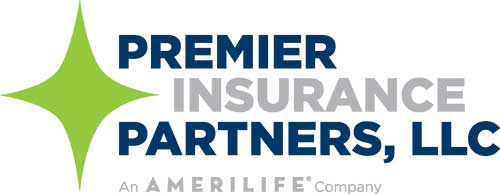Selling insurance can be a lucrative and rewarding career for those with a knack for sales and a desire to help people protect themselves against life’s uncertainties. However, like any profession, it comes with its advantages and disadvantages. Let’s explore the pros and cons of selling insurance to provide a balanced perspective for those considering this career path.
Pros:
1. Lucrative Earning Potential: One of the most attractive aspects of selling insurance is the potential for high earnings. Insurance agents often earn commissions based on the policies they sell, and with the right skills and dedication, the income can be substantial.
2. Job Security: Insurance is necessary for individuals and businesses alike, which means there will always be a demand for insurance products. This constant demand ensures job stability, a benefit not always found in other industries.
3. Flexible Work Schedule: Many licensed insurance representatives appreciate the flexibility of setting their schedules, which can be especially attractive for those prioritizing work-life balance or managing external commitments. However, it’s important to note that effort is required to capitalize on the benefits. Specifically, sales agents often receive residuals from sold policies through renewals and referral business. These opportunities for recurring income are advantageous, particularly for independent sales agents offering multiple products from various carriers.
4. Opportunity for Growth: As licensed agents gain experience and expand their client base; they often encounter opportunities for career path advancements within insurance companies. This progression may lead to roles such as sales manager or agency owner. Importantly, this advancement opens avenues for earning additional income through managing other agents.
5. Low Barrier to Entry: You must pass an insurance license exam. Some companies may require a college degree. Agent training is usually available. Do your research because not all companies have the same experience, training, or access to products from various insurance carriers for you to sell.
6. Helping Others: Selling insurance allows sales representatives to provide their clients valuable protection and peace of mind. For example, sales agents play a vital role in helping individuals and businesses safeguard their assets and loved ones, whether Medicare, life insurance, health insurance, or annuities.
Cons:
1. Highly Competitive Industry: The insurance industry is known for its high competitiveness, where numerous agents compete for the same clients and insurance policies. This environment can challenge new agents seeking to enter the field and discover their niche.
2. Regulatory Complexity: Selling insurance policies requires a thorough understanding of complex regulations and compliance requirements. Sales Agents must stay current on industry changes to ensure they operate according to regulations, such as those with CMS when selling Medicare Advantage and Medicare Supplement Policies.
3. Rejection and Uncertainty: Like any sales-based profession, selling insurance comes with its fair share of rejection. Sales Agents must be resilient and persistent in the face of rejection and be prepared for periods of uncertainty, especially when starting. It may be easier to excel if you are comfortable with cold calling and speaking with people daily.
4. Fast-Paced Career: Insurance companies often set sales targets for their agents, which can create pressure to meet quotas and goals in your first year. This pressure can sometimes lead to aggressive sales tactics or a focus on quantity over quality. Building relationships is important; don’t forget. If you are knowledgeable and truly want to make sure a potential client is happy with their policy, they tend to be loyal, especially if you maintain those relationships throughout the year, not just when their policy needs to be renewed.
5. Variable Income: While the earning potential in insurance can be high, income can also be unpredictable, especially for licensed agents who rely solely on commission-based incomes. Fluctuations in sales, changes in market conditions, and other factors can impact an agent’s income from month to month.
6. Paid Time Off Can Vary: As an independent insurance agent, you manage your schedule. However, you don’t have the traditional PTO benefits, and holidays and sick days may not come with paid compensation. This can be challenging for an insurance salesperson, but it differs from many sales jobs.
In conclusion, selling insurance offers numerous benefits, including lucrative earning potential, job security, and the opportunity to help others protect themselves against risk. However, it also comes with challenges such as intense competition, regulatory complexity, and pressure to meet sales targets.
If you are considering a rewarding career in insurance sales, weighing these pros and cons carefully can help you decide whether it’s the right path for you. No matter what career you choose, it takes discipline, determination, focus, hard work, and often long hours.
Here at Premier Insurance Partners, we can help you succeed no matter where you are in your insurance career. Contact Premier Insurance Partners today and let us help you skyrocket your insurance business! You can click the link to the contact form, call 855-827-1661, or email info@pip1.com.
B03122401.

